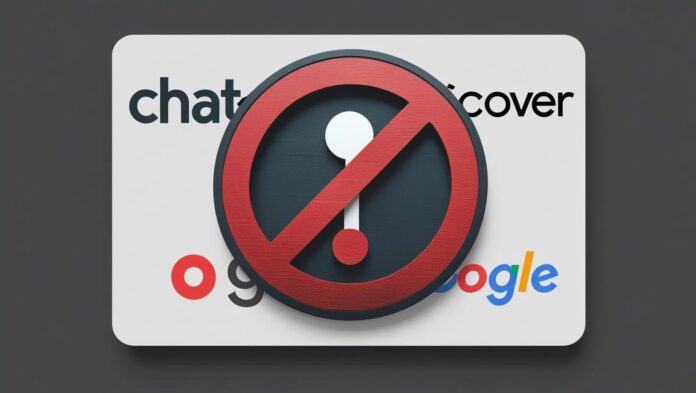In 2025, AI writing tools—once celebrated for boosting productivity—are now being blocked in classrooms, boardrooms, and publishing halls. Platforms like ChatGPT, Jasper AI, Copy.ai, and others have seen usage restrictions imposed by educational institutions, corporate giants, and research conferences alike. Students find it very difficult without access to these banned AI tools. But institutions don’t want these tools in their system.
Why? Concerns over academic integrity, data privacy, creative authenticity, and legal responsibility are prompting this widespread ban.
So, if you’re still using these tools without caution… It’s time to rethink your approach.
1. Academic Bans: AI vs. Authentic Learning
AI-generated content is raising red flags in schools and universities worldwide.
- New York City Public Schools and Los Angeles Unified School District were among the first to block ChatGPT, arguing it does not promote critical thinking or problem-solving skills.
- International universities like Sciences Po (Paris) and RV University (India) have banned the use of generative AI tools by students.
- Major research conferences, such as the International Conference on Machine Learning (ICML), prohibit papers written entirely or partly by AI, unless specifically stated for experimental use.
These bans are designed to safeguard student learning outcomes, ensuring real skill development over AI shortcuts.
2. Corporate Restrictions: Safeguarding Data and Compliance
Big brands are also wary of AI tools being used in the workplace. Here are some notable bans and their reasons:
| Company | Ban Reason |
|---|---|
| Apple | Prevent leakage of sensitive info via ChatGPT or GitHub Copilot |
| Amazon | Concerned about third-party access to customer data |
| Bank of America | Enforced a ban to protect internal compliance and privacy standards |
| JPMorgan Chase | Blocked ChatGPT for security and data governance concerns |
| Spotify | Removed AI-written music and blocked AI tools on corporate devices |
These bans highlight the risk of accidental data sharing, which could lead to compliance violations, customer trust issues, and legal actions.
3. Publishers & Conferences: Drawing the Line on Authorship
The scholarly world is drawing clear boundaries on what counts as original authorship:
- Cell Press (Elsevier) journals prohibit listing AI tools as authors, requiring authors to disclose AI involvement only in the methodology.
- Conferences like ICML and others state that AI-written content must not replace human authorship.
💡 Key takeaway: AI lacks intentionality, accountability, and ethical reasoning, which are foundational to academic authorship.
4. What’s Fueling These Bans?
Here’s a deeper dive into why AI writing tools are facing resistance:
1. Academic Integrity
Using AI for assignments could mean students skip the cognitive effort needed to develop analytical and writing skills.
2. Data Privacy & Security
Many tools store prompts and responses, creating a risk if users input proprietary, sensitive, or personal information.
3. Legal & Ethical Responsibility
AI models can’t consent, own content, or take responsibility, making them unsuitable as co-authors or contributors in formal settings.
4. Creative Authenticity
In fields like journalism, music, and design, AI-generated work is seen as generic, lacking the personal voice and innovation of human creators.
5. Should You Still Use These Tools?
The answer is not a simple “yes” or “no”—instead, it’s about how you use them.
Smart Strategies for Ethical AI Use:
- Check your institution’s or employer’s policy: Never assume. Some require citations; others ban AI completely.
- Use AI for ideation, not final drafts: Generate outlines, polish grammar, or brainstorm—but write the content yourself.
- Avoid submitting AI content as original work. This applies to job applications, academic assignments, and research papers.
- Don’t input sensitive data: Never type real customer details, internal documents, or personal information into AI tools.
- Disclose usage clearly: Example: “This blog post was drafted using ChatGPT and edited by the author for clarity and originality.”
Strategies to Consider: How Top Creators Use AI Responsibly
Leading writers and bloggers have found a balance between automation and authenticity:
- Editorial transparency: They mention when and how AI tools were used—building trust with readers.
- Hybrid workflow: AI helps in the drafting and structuring phase, but final edits are always human.
- Compliance review: Before publishing, they verify content against plagiarism checkers and AI detection tools.
- Personal voice + AI: Successful creators infuse AI-generated content with personal anecdotes, experiences, or stories.
Conclusion: Use AI Tools… Wisely, Not Blindly
AI writing assistants are not inherently bad, but blind reliance is. With educational institutions, global brands, and conferences taking action, it’s crucial to stay aware, stay ethical, and stay creative.
Before using tools like ChatGPT, Jasper, Copy.ai, or Writesonic, ask yourself:
“Am I enhancing my voice—or outsourcing it entirely?”
Remember: AI should support your skills, not replace them.
FAQs
Because they may hinder student learning, critical thinking, and originality. Many schools fear students will misuse them to complete assignments without understanding.
It depends on your company policy. Many firms block ChatGPT over privacy and compliance issues.
Most major conferences and journals disallow fully AI-generated research papers unless used for experimentation and clearly disclosed.
Yes, but legality is different from policy. Even if it’s legal, your employer, school, or publisher may have their own rules.
No. Most publishers argue that AI lacks agency, cannot take accountability, and thus cannot be listed as an author.

